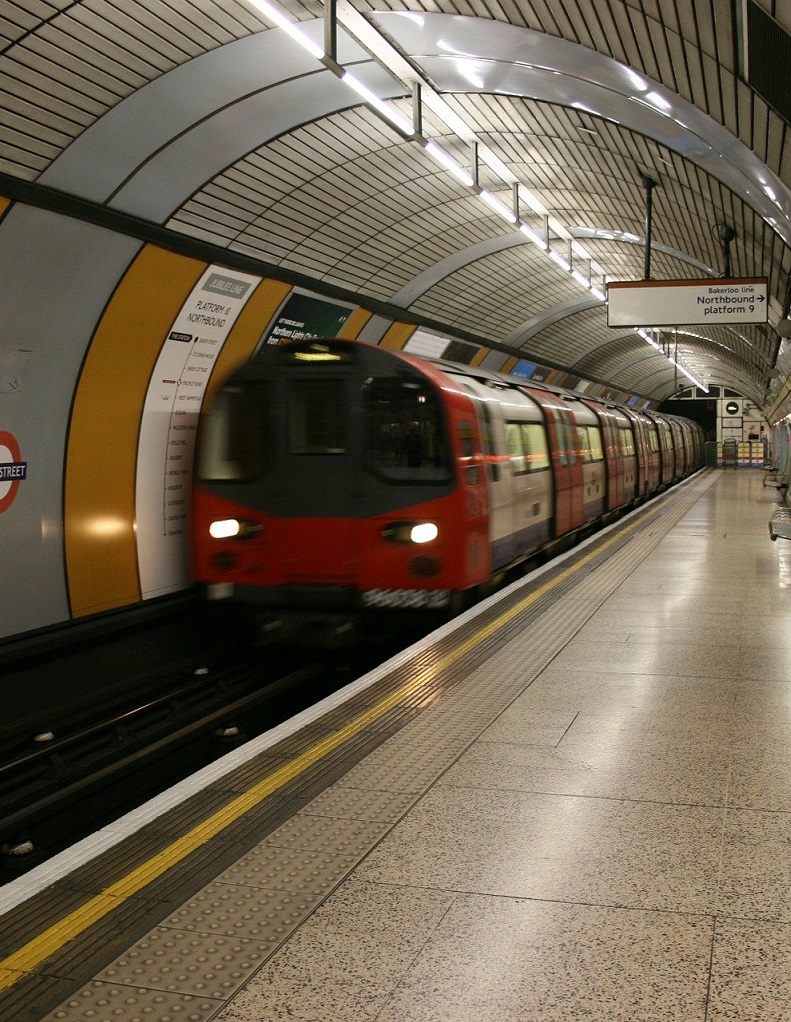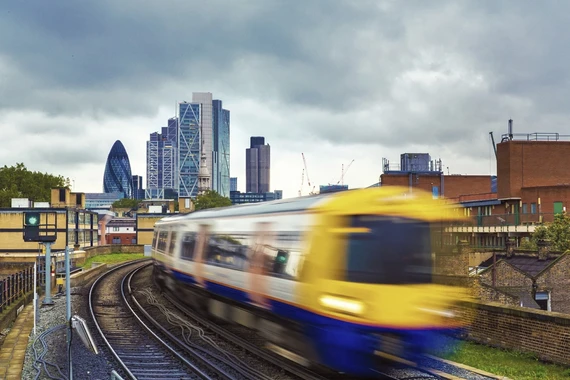Europe's largest construction project is currently taking place under the streets of London. The Crossrail project is creating 42km of new East/West underground tunnels and nine new stations - the capital's first completely new underground line in three decades.
Summary of works
Client: Crossrail and Atkins
Start Date: November 2012
End Date: March 2015
Location: London

Case Study
Drilling Down

As a by-product of the construction work, approximately six million tonnes of tunnel spoil will be created. This will not go to waste however, with approximately two million tonnes of the spoil being deposited at Wallasea Island, creating a new RSPB bird sanctuary. The additional spoil has been used for land restoration.
However, prior to placement of the waste, it must be chemically characterised for typical ‘brownfield’ contaminants and more specialist compounds derived from the injection of grout and polymers used when tunnelling. This assessment is key to ensuring the material does not fail the relevant chemical criteria set by the site’s environmental permit. In order to assess whether the spoil is fit for purpose, SOCOTEC is analysing numerous samples collected from the construction of Crossrail.
As a by-product of the construction work, approximately six million tonnes of tunnel spoil will be created. This will not go to waste however, with approximately two million tonnes of the spoil being deposited at Wallasea Island, creating a new RSPB bird sanctuary. The additional spoil has been used for land restoration.
However, prior to placement of the waste, it must be chemically characterised for typical ‘brownfield’ contaminants and more specialist compounds derived from the injection of grout and polymers used when tunnelling. This assessment is key to ensuring the material does not fail the relevant chemical criteria set by the site’s environmental permit. In order to assess whether the spoil is fit for purpose, SOCOTEC is analysing numerous samples collected from the construction of Crossrail.
Bringing In The Experts
In order to construct the new tunnels, drilling with Tunnel Boring Machines (TBMs) started in November 2012 and is expected to complete in March 2015. Operated by Joint Ventures, each TBM weighs nearly 1,000 tonnes, is 7m in diameter and 150m long. Following the injection of polymers to condition the ground, each TBM can tunnel at 8-10 cm/min, through the London Clay Formation, Lambeth Group and Thanet Sand stratigraphic groups.
Keeping It Clean
A key concern for Crossrail is making sure that it remains compliant with the Water Framework Directive which aims to monitor, measure and set benchmarks for the ecological and chemical status of ground and surface waters.
As such, for this project, the main uncertainties came from the potential risk to the aquatic environment. If it was assessed that the polymers were considered to cause harm, Crossrail faced three possible outcomes, each with a significant cost attached:
- Change the polymer, delaying the TBM start date, at a cost of approximately £250,000 per day
- Design a bund and cell within the facility to accept the material, at a cost of tens of thousands of pounds, requiring a requisite major change to a facilities permit – again delaying the TBM start date
- Prevent the tunnelled waste from being deposited in an area in close proximity to controlled waters, resulting in logistical issues. This would have resulted in the highest costs, running into >£1M’s including TBM delays.
To determine whether any of these would be necessary, SOCOTEC was brought on board to contribute to the assessment of the potential eco-toxic risks of the tunnel spoil.
To do this, the Environmental Chemistry team at SOCOTEC worked closely with the two major contractors - Joint Ventures, constructing the running tunnels and stations, and Atkins Limited, a leading design, engineering and project management consultancy, to analyse the tunnel spoil.
Sidestepping Secrecy
Due to the Intellectual Property rights of the polymer manufacturers, SOCOTEC (along with the Joint Ventures and Atkins) were not party to the chemical makeup of each type of polymer, significantly increasing the difficulty in determining their potential environment impacts. Instead, SOCOTEC created a methodology for analysis using a careful evaluation of polymer chemistry, utilising techniques such as ICP-OES (Inductively Coupled Plasma – Optical Emission Spectroscopy) and GC-FID (Gas Chromatography – Flame Ionisation Detector). This process allows SOCOTEC to determine the concentrations of polymer within the excavated soil following biodegradation, and also the potential for it leaching into the surrounding environment.
As part of the determination of the soil’s fitness for purpose for the Wallasea nature reserve, SOCOTEC is also testing for five key contaminants: asbestos, cyanide, aromatic hydrocarbons, arsenic, and cadmium. If present, the contaminants could cause issues for the local eco-system, such as toxicity, carcinogenicity, polluting the water or stunting plant growth.
These tests are routine and ongoing for the tunnel spoil at the Western (C300), Eastern (C305), Thames Tunnels (C310), Bond Street (C411, C412), Paddington (C405) and Docklands Transfer Station (C807) sites.
Benefitting From a Holistic Approach
Jonathan Evans, principal consultant at Atkins, said: “We have worked with SOCOTEC for several years and knew that the team could be relied on to provide accurate and timely analysis. This is a project made more complex by the secrecy which has to surround the polymers we use to prepare the soil for drilling, yet the expertise of the Environmental Chemistry team at SOCOTEC has enabled an alternative method of testing for polymer detection”.
“Our tests enabled Atkins to make a technically robust and meaningful assessment of the impact that the polymer may have on the aquatic environment. This meant that the client (Crossrail) and the Environment Agency had sufficient data and information to agree the deposition of the material with the confidence that there would be negligible (if any) impact to aquatic life,” explained Amy Parekh-Pross, technical marketing manager in SOCOTEC's Environmental Science division.
She continued: “Moreover, by choosing to tap into the broad knowledge available through SOCOTEC's multiple divisions, Crossrail and Atkins have been able to entrust just one third party with both the complex project and routine environmental testing.”





